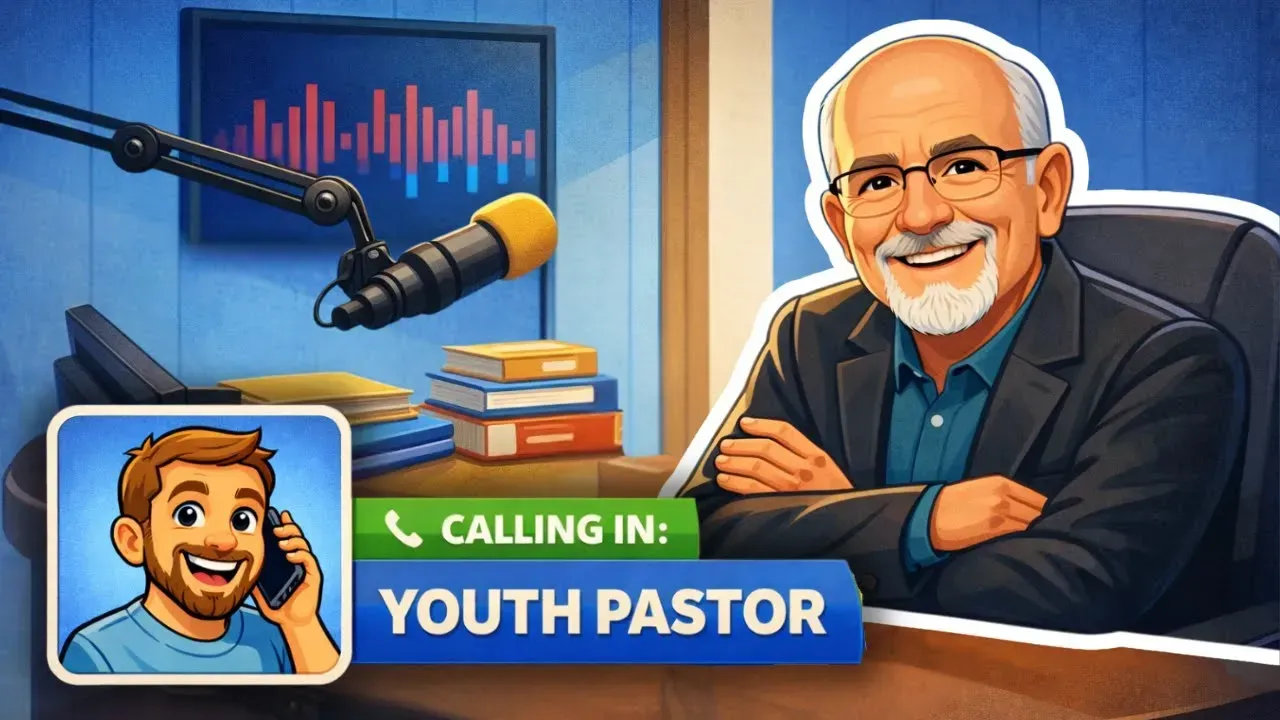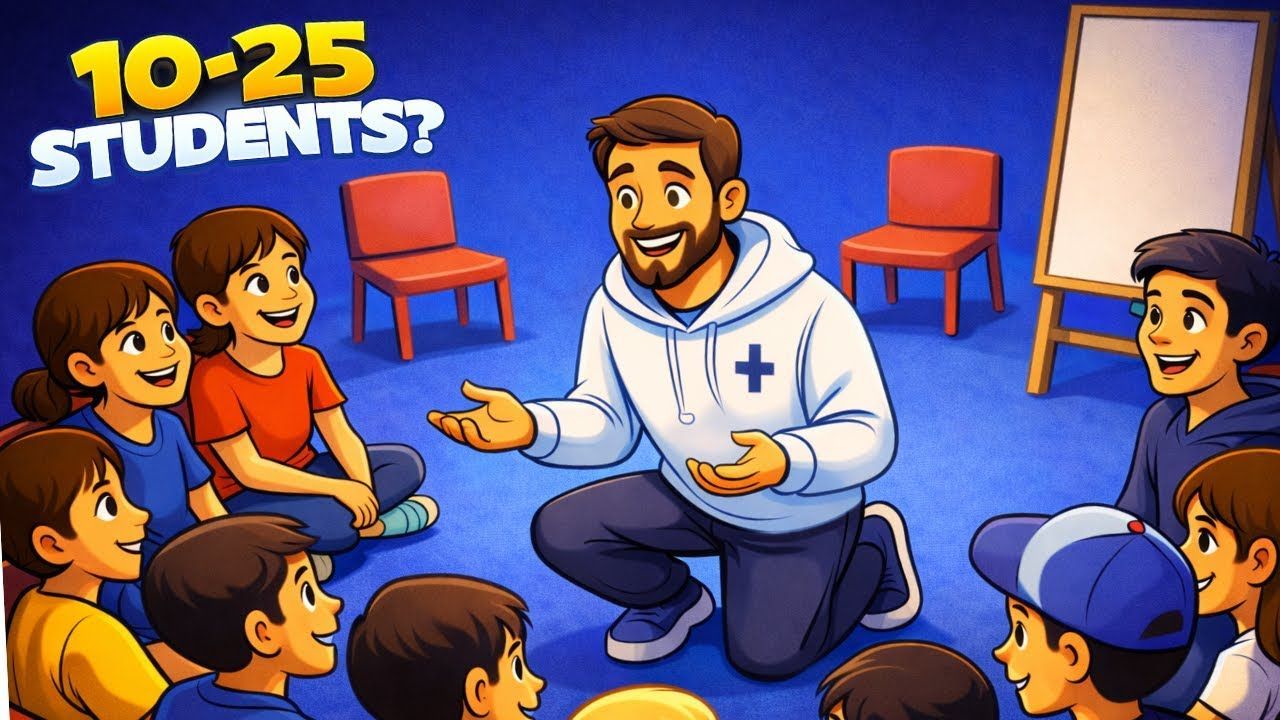Saving Eutychus: How to Communicate More Effectively in Youth Ministry | BTYR Podcast • Episode 65
Saving Eutychus: How to Communicate More Effectively in Youth Ministry | BTYR Podcast • Episode 65
How to Communicate Effectively with Students: Lessons from the Beyond the Youth Room Podcast
In a recent episode of the Beyond the Youth Room podcast, hosts Ryne and Keith discussed one of the most critical skills for youth leaders: effectively communicating with students. Their conversation was packed with practical advice and meaningful insights to help youth pastors better connect with their audiences and teach God’s Word. Below are some of the key takeaways from their discussion.
Radiate Jesus in All You Do
One foundational principle Ryne and Keith emphasized was the importance of radiating Jesus in your communication. Regardless of your communication ability, people should be able to tell that you've spent time with the Lord. As Ryne shared, "Some people might preach the gospel better than I, but no man can preach a better gospel." This timeless truth reminds us that the gospel itself is the great equalizer, empowered by the Holy Spirit to transform hearts.
Communication Isn’t Automatic
One mistake many youth pastors make is assuming that a captive audience equals an attentive one. As Ryne pointed out, “You can make students sit in a room and remove distractions, but that doesn’t mean they’re listening.” Capturing students’ attention requires preparation, creativity, and intentionality. Use captivating hooks, relatable stories, and engaging transitions to keep their focus and draw them to the gospel message.
The Power of Relationships
Ryne shared a personal story about being told early in his career that he wasn’t a great preacher. While the feedback was initially devastating, it led to a pivotal realization: investing in relationships outside of the pulpit gives you credibility and authority in students’ lives. When students know you genuinely care about them, they are more likely to listen to what you have to say.
Methods and Mindsets for Preparation
Effective communication involves both preparation and heart. Ryne and Keith highlighted some guiding principles for teaching:
- Be a student of communication: Learn from great communicators. Watch videos, study sermons, and analyze what makes their messages impactful.
- Anchor your preparation in Scripture: Follow the example of Ezra 7:10—study the law of the Lord, apply it to your life, and then teach it to others.
- Adapt to your audience: Students’ attention spans vary, and middle and high schoolers need messages tailored to their developmental levels. Use stories, illustrations, and even multimedia to maintain engagement.
Balancing Humility and Growth
Ryne encouraged youth pastors to be humble enough to acknowledge areas for improvement. Drawing inspiration from Acts 4:12-14, he reminded listeners that Peter and John, though perceived as “uneducated, common men,” astonished others because they had been with Jesus. Effective communication isn’t about showcasing talent but about faithfully delivering the message God has entrusted to us.
Teaching God’s Word with Clarity and Depth: A Balanced Approach to Youth Ministry
In youth ministry, one of the most important responsibilities is teaching God’s Word in a way that resonates with students while challenging them to grow deeper in their faith. Recently, Ryne shared some insightful perspectives about preparing and delivering messages that engage, inspire, and equip students.
Starting with Scripture, Not Just a Topic
Ryne emphasized the importance of teaching from Scripture rather than starting with a topic and looking for verses to support it. While topical series can be impactful, such as an eight-week series on grace, it’s crucial to anchor lessons in passages that clearly communicate the central truth. This ensures a biblically sound foundation.
Quoting Charles Spurgeon, Ryne highlighted the value of immersing oneself in the text, even reading it 50 times before preparing a sermon. While not everyone may reach Spurgeon’s level, studying the text deeply allows its timeless truths to emerge and guide the message.
The Inductive Bible Study Method
A cornerstone of Ryne’s preparation is the inductive Bible study method, which involves:
- Observation: What does the text say?
- Interpretation: What does it mean to the original audience?
- Application: How does it apply to us today?
Interpretation focuses on identifying the timeless truths of Scripture. For example, rather than jumping to how believers in 2025 should give generously, Ryne suggests starting with what the Bible communicated to its original audience. Only then can we explore how these truths translate into practical applications for modern believers.
Adapting Applications for the Audience
While the truths of Scripture remain unchanged, the application often varies by audience. Ryne shared how he tailors examples to connect with students’ experiences. For a passage on obedience, applications for teenagers might address respecting parents or resisting online temptations. By painting specific scenarios, Ryne helps students see how to live out Scripture in their daily lives.
The Hook, Book, Look, Took Method
To structure his messages, Ryne often uses the "Hook, Book, Look, Took" method:
- Hook: Capturing attention with a story, question, or illustration.
- Book: Walking through the Scripture, providing context and background.
- Look: Emphasizing the interpretation and timeless truth.
- Took: Offering clear, actionable applications for students to take away.
This framework ensures that messages are both engaging and impactful. Ryne also stresses the importance of clarity, noting, “Foggy in the pulpit, cloudy in the pew.” If the speaker isn’t clear, the audience won’t understand either.
Balancing Depth and Accessibility
One challenge in youth ministry is navigating the tension between teaching content that’s too basic or too advanced. Ryne advises aiming just above students’ heads, encouraging them to stretch and grow. He recalls testing this approach by offering an optional systematic theology class for middle schoolers, only to find the room packed with eager participants.
Students are often capable of handling more depth than we expect. By presenting challenging truths in a relatable way, youth leaders can inspire students to ask questions, wrestle with Scripture, and grow in their faith.
Addressing Criticism: Too Simple or Too Complex?
When faced with feedback like “This is too basic” or “This is over their heads,” Ryne suggests addressing the underlying pride—whether it’s on the part of the listener or the teacher. God’s Word is timeless and applicable to everyone, regardless of circumstance. As youth leaders, our role is to present Scripture clearly, trusting that God will use it to work in students’ hearts.
Conclusion: Teaching That Transforms
Teaching students requires intentionality, clarity, and a willingness to challenge them. By grounding lessons in Scripture, interpreting timeless truths, and adapting applications to their lives, we can equip students to live out their faith in a way that lasts beyond youth group. As Ryne puts it, “If you don’t leave with more questions than you came in with, I’ve failed.”
Youth ministry isn’t about giving all the answers—it’s about helping students discover the depth and beauty of God’s Word for themselves. And when we do that faithfully, we see God work in incredible ways.











